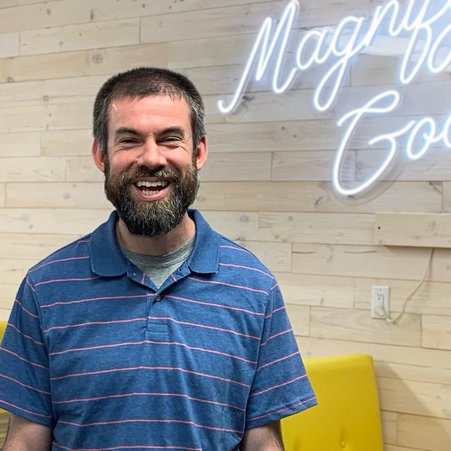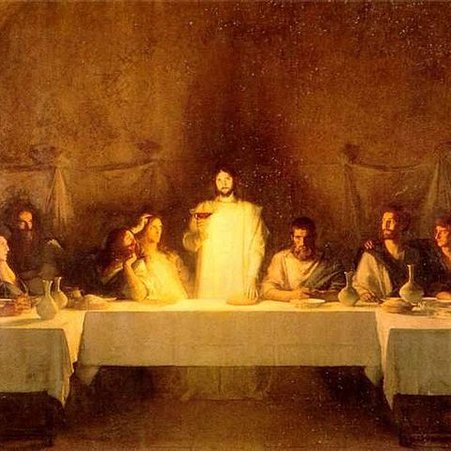
Lizards, Spiders, and Wisdom
Which of these intruders would generate more of a ruckus in your home: a lizard or a spider? The Book of Proverbs asks us to imagine one of these critters in a king’s home—his palace. And Proverbs doesn’t stop there. It asks us to go even further and envision one of these creatures in our own hands!

Welcome Aboard, Brent!
We are happy to introduce the newest member of Positive Action for Christ, Brent Niedergall.

Resurrection Doubt
What’s the first thing you think of when you hear Thomas mentioned? “Doubting Thomas,” isn’t it? Of all the disciples—besides Judas—Thomas seems to get put down the most. He refused to believe Jesus was alive unless he saw Him.

A Season for Everything
As one who enjoyed a special measure of God’s wisdom, Solomon reminds us that the only constant in life is change — there is a season for everything (Ecclesiastes 3:1). We are experiencing a changing of seasons here at Positive Action.

Fighting Loneliness
The current pandemic has ravaged our social lives. We have been limited in the times and places that we can be with others. And the necessity of wearing masks has compounded these difficulties, limiting our ability to recognize people, read social cues, and respond to facial emotions. Even the most introverted of us have felt the sting of this degree of isolation.

Now Available: Sharpening Iron
Friendship is a tremendous blessing from God that provides opportunities to glorify Him through enjoying each other, supporting one another, and growing together. No relationship will be free from conflict, but friends can grow closer by the way they work through problems together. Our friendships will either thrive through respect and love—or shrivel and die through selfishness.

God in Human Flesh?
But the doctrine of the incarnation runs deeper than that. It’s an extraordinarily complex line of thought that makes us wonder at the work and intent of God. How could Christ take on human flesh? How did His humanity serve the purpose of God? Why did He condescend to our state and commune with us? And why did He choose to be born to Mary, a betrothed virgin?

Free Christmas Activity Sheets
We’ve put together a set of activity sheets from our curriculum to support you as you tell the story of Jesus’ birth. Whether used with visiting family members, your own kids, or even for family worship, these printable pages provide activities that will engage children with the birth story of Jesus.

The Perfect Example
Everything good is a gift of God, so true love points people to God’s character and work. By God’s grace, we help people, we encourage them, we challenge them, and we connect them to His truth. Love appreciates the good God placed in others, and it seeks to add good, as well.

What Love Is Not
Previously we dealt with the concept that true biblical love stands out as the indicator of genuine faith and must be a key motivator in the life of every believer. As Christians embrace the importance of love, we must then ask the next hard question, “What is love?” Defining love can be a difficult task, so let’s first consider what love is not.

A New Commandment
The night before Jesus gave His life for us, just hours before He was arrested, beaten, and falsely accused, He gave His disciples a new commandment—to love each other, just like Christ loved them. By this love would people forever recognize the followers of Jesus.

Reflect the Truth
God’s truth multiplies and diffuses into many fields of knowledge, like science, philosophy, art, and literature. Many people in these fields—scientists, artists, philosophers—obscure or deny God’s truth, but they can still teach us a great deal about Creation. We can see God’s fingerprints everywhere.

Freed by Truth
Many of us enjoy the blessing of freedoms. Our prosperous economy provides easy access to all kinds of food choices, while our military eases any security concerns. We can worship as we please, speak our minds, and even pursue our desires.
Can it get any better?

What is Truth?
Early on the morning that Jesus was crucified, the religious leaders brought Him to the praetorium, the place where the Roman governor, Pilate, made his headquarters. The chief priests and Pharisees could not legally execute anyone on their own authority, so they tried to convince Pilate that this teacher, Jesus, would stir up trouble.





